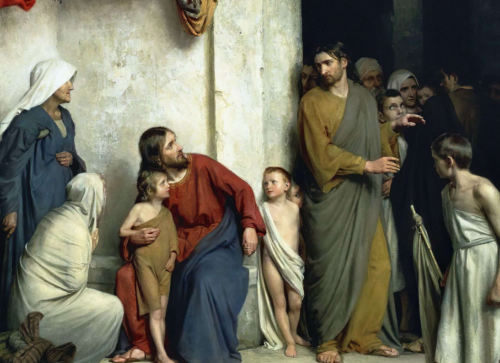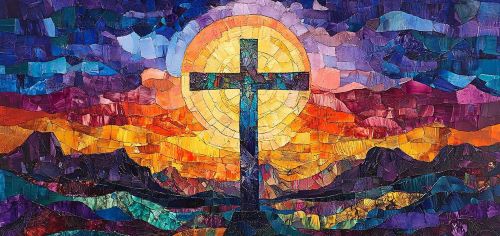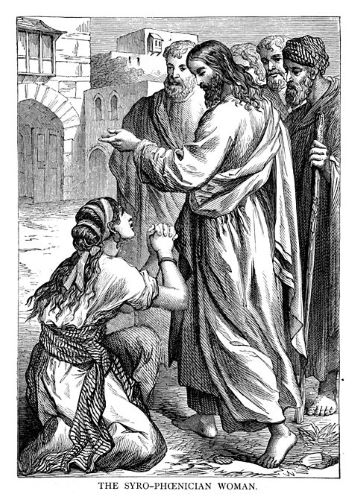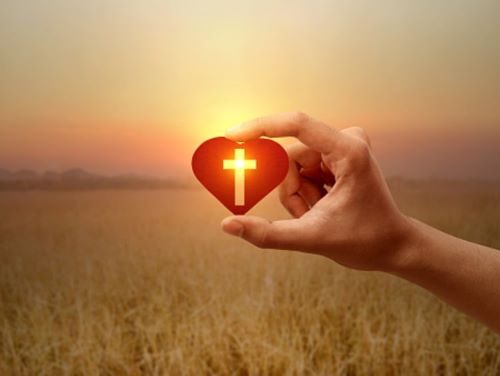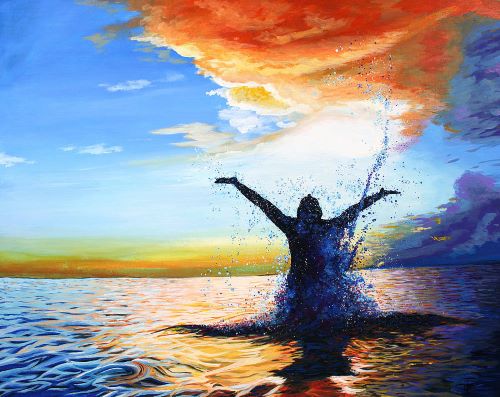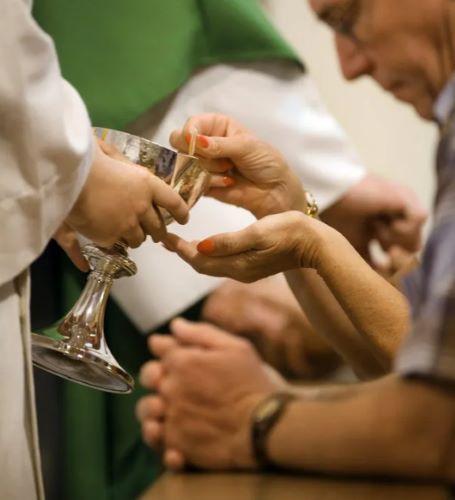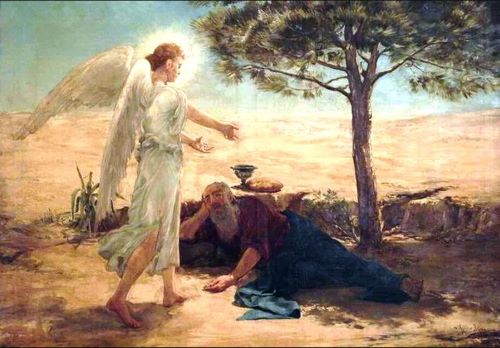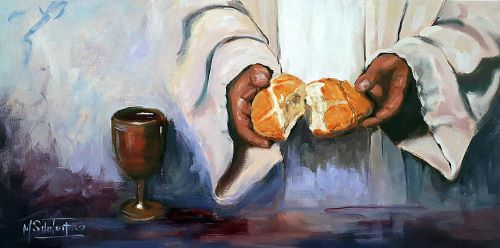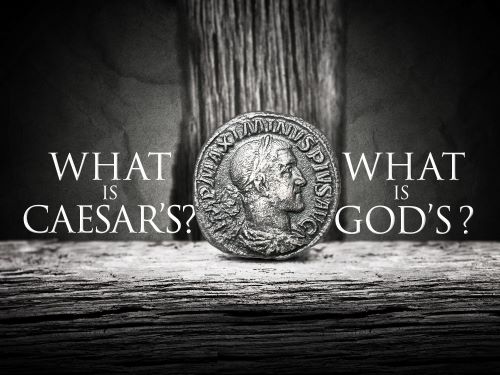
Whose Face Do We See?
Year A
Exodus 33:12-23
Psalm 99
1 Thessalonians 1:1-10
Matthew 22:15-22
May the words of my mouth O God… speak your truth…
In today’s reading from Exodus… Moses is fretful… he wants God to reassure him… that God will accompany him and the Jewish people as they sojourn… it echoes some of the fear in recent passages… that God has brought them out into the desert only to abandon them… and God reassures Moses that he has found favor in God’s sight… and that God’s presence will accompany them… and the Hebrew word… panim… that’s translated as face… is also in this same passage… translated as presence… God’s face is God’s presence… ] but in v. 20 God is adamant… God warns Moses that he cannot see God’s face and live… and this idea that you can’t see God’s face and live seems to be pretty widespread… right… but sometimes we come across two verses in scripture that contradict each other… because just nine verses earlier… in 33:11a… the text says… Thus the LORD used to speak to Moses… face to face… as one speaks to a friend… and now in v. 20… God seems to be saying just the opposite… how can that be…
Author Doug Hershey writes… perhaps the confusion comes not from God’s face… but from our assumption about the word live… in Hebrew… the word that’s translated as live… is chayay… in biblical Hebrew this word comes from chai… which means life… chayay sometimes describes being revived… or strengthened internally into a full life… or even to save a life… this was the clear message in Deuteronomy 8:3 when God told Israel that… man does not live [chayah] by bread alone… but man lives [chayah] by everything that proceeds out of the mouth of the LORD…
And I believe that this is what God is conveying here in Exodus… that no one can see God’s face… can be in God’s presence… and continue to be revived and strengthened by regular means… no one can look directly at God… and simply call it a nice experience… in other words… no one can see the face of God and simply chayay… continue on as if everything was normal… looking into the face of God can change us in such dramatic ways that our previous life is destroyed… but isn’t that what we want… to give our lives to God… to be dramatically changed… but dramatic change doesn’t always come easy…
I was once talking with a friend about free will… we were talking about addiction and recovery… and some family systems issues… and about getting healthy… and I got kind of annoyed with her… because in a cavalier way… in a kind of off-the-cuff way… she said… Well… it’s just a choice!… it’s just a choice is it… it seemed insensitive to say it this way… because I know how difficult that can be for most of us… and I have empathy for what people go through… the therapy and counseling that people go through… trying to get out from under the weight of unhealthy behavior patterns… so for her to say that it was just a choice… like deciding what to have for dinner… that recovery was just a choice… seemed to minimize the multi-generational dysfunction that can be passed down to us…
Because even as we try… we will never get all of it right… sometimes we will not respect or lift up the dignity of every human being… sometimes our protecting hand will not be there to shield our children and they will be exposed to things too overpowering for them… sometimes we will choose cheap grace… sometimes we will choose the bottle over sobriety… but when we choose the face of God… we choose life…
In today’s Gospel… the Pharisees sent their disciples along with some Herodians… and what we have here are two competing groups… and they each have their own disciples… something like political parties of our time… the Herodians represent supporters of the Roman regime who would support paying the tax… the Pharisees on the other hand… were popular with the people… because in principle they resented the tax… but didn’t go as far as the radical nationalists who publicly resisted its payment… and this tax wasn’t abstract… this was the Roman head-tax instituted in 6 CE… when Judea became a Roman province… and it was this census that triggered the nationalism that became the Zealot movement… which then turned into the disastrous war which ended in 70 CE with the destruction of the Temple… and the Zealot movement gained momentum… because the tax could only be paid with Roman coins… and Roman coins bore the image of Tiberius Caesar… the son of the divine Augustus… an inscription considered blasphemous by many Jews…
So pretending to flatter Jesus… and intending to trap him… they ask a trick question which is designed to either alienate the nationalists… if Jesus says it’s OK to pay the tax… ] or make him subject to arrest by the Romans… if he says it’s not OK to pay it… ] and Jesus asks for a coin… and in the sacred precincts of the Temple… in a place where they know that what they have is forbidden… the Pharisee’s disciples produce a coin with its idolatrous image… and Jesus utters the famous line about giving to Caesar what is his… and to God what is God’s… and Jesus’ answer is an indirect yes… since it was not against Torah… against the law… to pay taxes…
Sometimes… as we look back into passages like this… it’s easy for us to project back some “all or nothing” thinking… but for Jesus… and for the prophets… there was no split between politics and religion… Matthew isn’t interested in this kind of dualism… because the kingdom of God that Jesus embraces… represents all of life… and so by answering the way he did… Jesus rejects this kind of polarized thinking… Jesus acknowledges the messiness of life… but goes beyond the original question with a warning of sorts about not giving to Caesar… the things that one ought to give to God… like divine status… because the face of God… is not depicted on gold… but is imaged in humanity… ] the coin of Caesar is gold… the coin of God is humanity… Caesar is seen in his currency… God however… is known through human beings… and so go ahead… and give your wealth to Caesar… but reserve for God the sole innocence of your conscience where God is beheld…
And if we remember Psalm 24:1… the Earth is the LORD’s… and the fullness thereof… that is… everything and everyone… it holds… Jesus reminds us then about the more encompassing imperative to serve God… and remembering that our duty to God exceeds all others… but if we remember that God always and only desires for us to choose life… and offers us God’s presence and face… we may more easily see through the brokenness of the world… and to a prayer of hope which I shared in 2016… [ attributed to Fr. Ken Untener ]…
It helps, now and then, to step back and take a long view. The kingdom is not only beyond our efforts, it is even beyond our vision. We accomplish in our lifetime only a tiny fraction of the magnificent enterprise that is God’s work. Nothing we do is complete, which is a way of saying that the Kingdom always lies beyond us. No statement says all that could be said. No prayer fully expresses our faith. No confession brings perfection. No pastoral visit brings wholeness. No program accomplishes the Church’s mission. No set of goals and objectives includes everything.
But this is what we are about. We plant the seeds that one day will grow. We water seeds already planted, knowing that they hold future promise. We lay foundations that will need further development. We provide yeast that produces far beyond our capabilities. We cannot do everything, and there is a sense of liberation in realizing that. This enables us to do something, and to do it very well. It may be incomplete, but it is a beginning, a step along the way, an opportunity for God’s grace to enter and do the rest. We may never see the end results, but that is the difference between the master builder and the worker. We are workers, not master builders; ministers, not messiahs. We are prophets of a future that is not our own…
Holy God… make it so. Amen.

